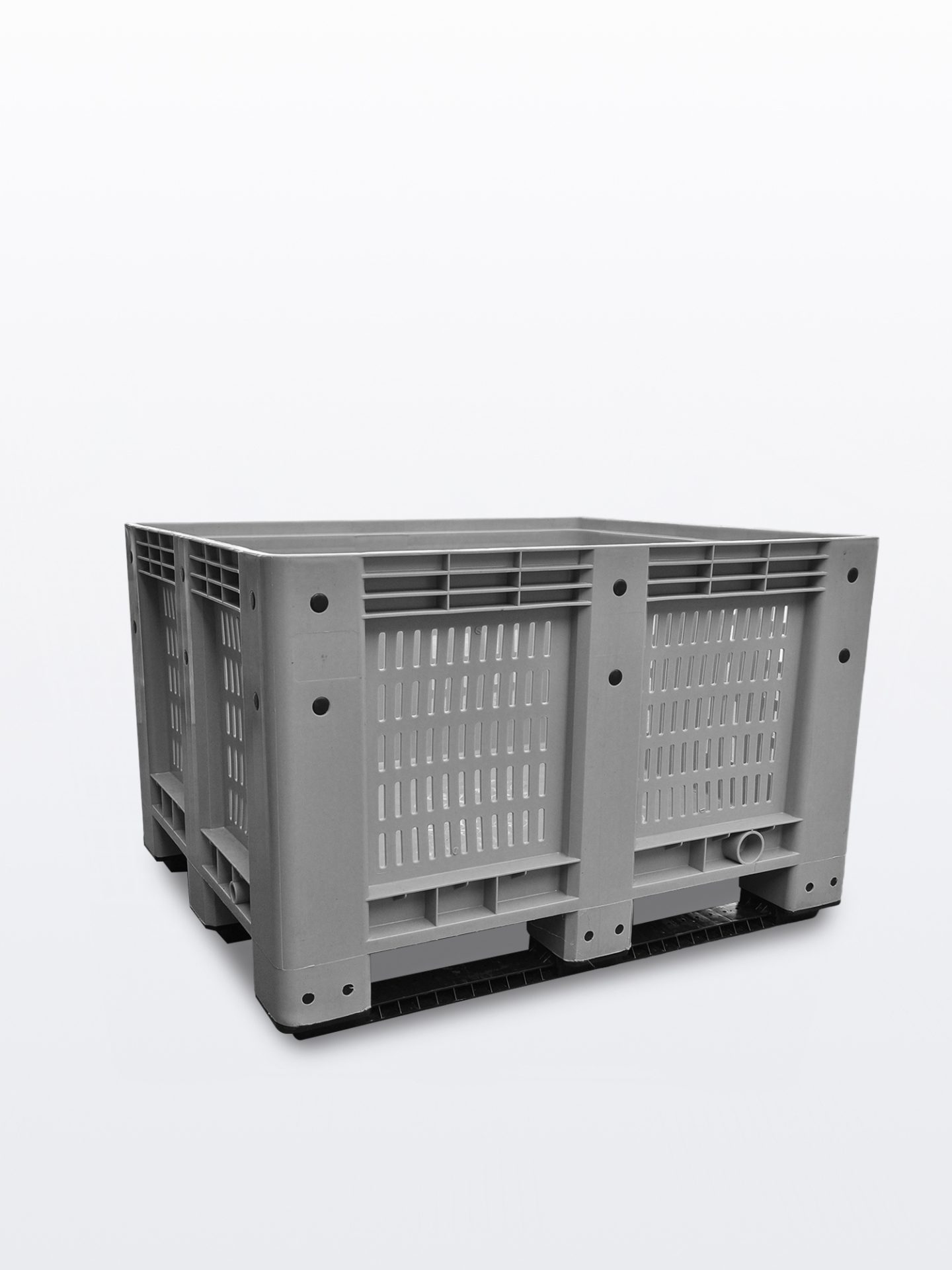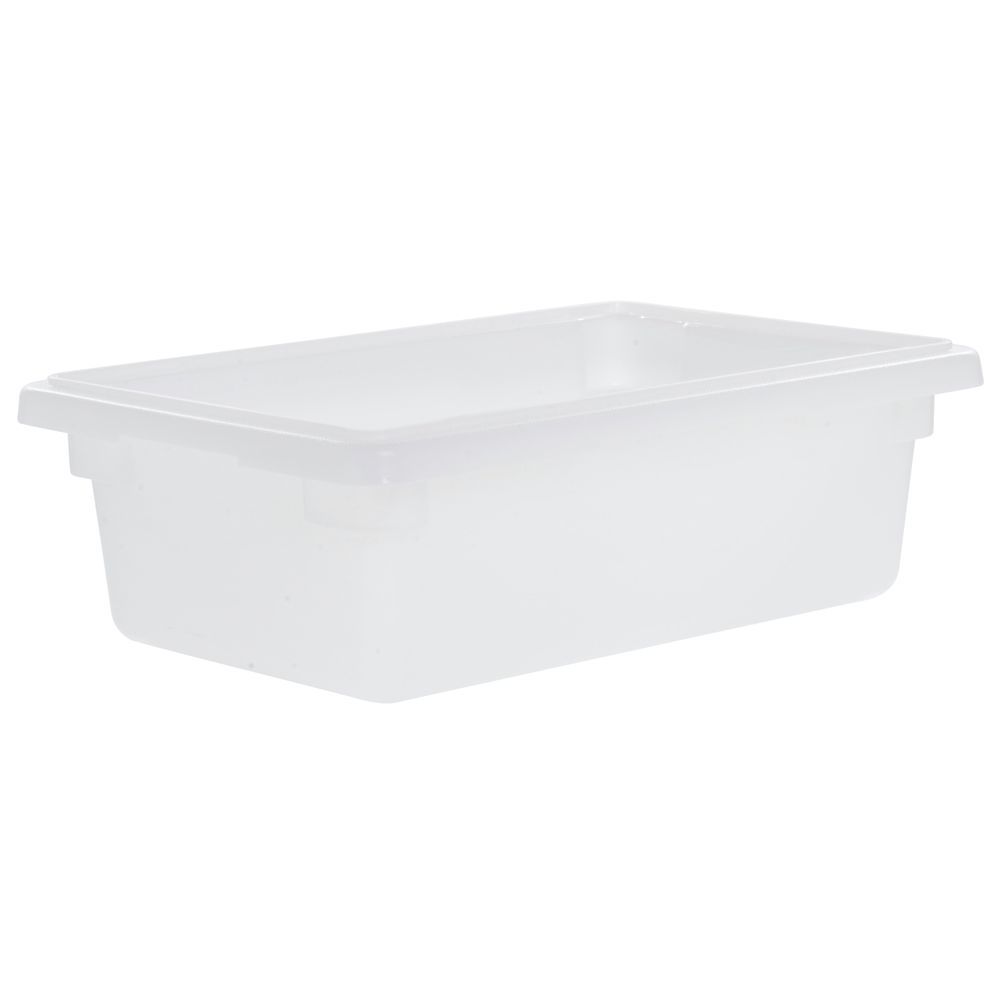The Role of Mass Plastic Containers in Effective Recycling Practices and Sustainability
Bulk plastic containers are integral to modern reusing efforts. Their design boosts the efficiency of material collection and transportation, adding to sustainability goals. These containers not only optimize space but also assist in checking contamination levels. Their implementation is not without obstacles. Comprehending the full range of their effect exposes a complicated partnership in between logistics and environmental responsibility that necessitates more exploration.
Recognizing Bulk Plastic Containers
Mass plastic containers work as a necessary element in various industries, helping with the storage space and transportation of items. These containers are normally made from robust materials such as high-density polyethylene (HDPE) or polypropylene, which provide toughness and resistance to environmental variables. Their layout usually includes features like stackability and modularity, permitting effective use space during both storage space and transit.
Industries such as farming, food handling, and making frequently use mass plastic containers due to their light-weight nature and simplicity of handling. The containers can be found in different dimensions and setups, dealing with the details requirements of various items. Their versatility prolongs past simple functionality; they can additionally be personalized with lids, takes care of, and classifying options to improve use - bulk plastic containers for sale. Because of this, bulk plastic containers play a vital role in enhancing logistics and supply chain procedures across multiple fields, thereby contributing to total efficiency and cost-effectiveness
Advantages of Using Mass Plastic Containers in Recycling
The utilization of bulk plastic containers substantially improves the efficiency of the process when companies focus on recycling initiatives. These containers are developed to enhance room, enabling the storage space and transportation of bigger quantities of recyclable products. This leads to less trips to recycling centers, thereby minimizing fuel usage and associated discharges.
Additionally, bulk plastic containers are resilient and resistant to numerous environmental aspects, guaranteeing that materials remain protected during handling and transportation. Their light-weight style even more adds to decrease transport costs.
Moreover, the harmony of these containers helps with much better sorting and processing of recyclable materials, which can enhance overall recycling rates - Bulk Plastic Containers. Organizations that embrace bulk plastic containers also show a dedication to sustainability, favorably influencing their brand name image. Inevitably, these benefits not only streamline reusing methods yet likewise add to broader environmental goals
Exactly How Bulk Plastic Containers Facilitate Material Collection
Effective material collection is substantially boosted by the use bulk plastic containers, as they supply a structured and effective option for collecting recyclable products. These containers are made to fit large volumes of products, which simplifies the sorting and storage space process. Their stackable design makes best use of room use, making it much easier for facilities to arrange recyclables without clutter.
On top of that, bulk plastic containers are weather-resistant and long lasting, permitting for exterior positioning without deterioration. This strength guarantees that products remain safeguarded up until they are collected for processing.

The uniformity in shapes and size of these containers assists in standardization across collection points, allowing far better monitoring of recyclable quantities. Their transparent nature allows for very easy presence of contents, helping in the monitoring of contamination degrees and assuring that only suitable materials are gathered. Generally, bulk plastic containers play an essential function in simplifying the product collection process, therefore promoting effective reusing practices.
Transport Effectiveness and Environmental Influence
Transport effectiveness plays a vital function in the reusing procedure, especially through the optimization of lots capacity wholesale plastic containers. By making best use of the quantity of product transferred, companies can substantially reduce the number of trips needed, thereby lessening their carbon footprint. This approach not only improves operational performance yet likewise adds to a lot more lasting environmental techniques.

Maximizing Lots Ability
Enhancing lots ability is usually overlooked, it plays a vital duty in improving transport performance and decreasing ecological influence in reusing methods. By making best use of the volume that mass plastic containers can hold, recycling procedures can reduce the variety of trips required for transportation. This not only decreases fuel usage but additionally reduces the wear and tear on lorries. Efficient lots administration allows facilities to use space successfully, guaranteeing that each transport cycle is as efficient as possible. In addition, well-optimized lots can lead to far better settlements with logistics carriers, possibly lowering general recommended you read prices. Inevitably, improving load capability adds to an extra sustainable recycling system by fostering effective resource use and decreasing waste generated during transport.
Minimizing Carbon Footprint
As recycling operations endeavor to lessen their ecological influence, reducing the carbon footprint connected with transportation becomes an essential objective. Mass plastic containers play a crucial role in achieving this objective by improving tons performance and maximizing logistics. Their light-weight yet durable layout permits for optimum cargo space application, reducing the variety of journeys needed to deliver materials. By consolidating deliveries, reusing centers can reduce fuel usage and greenhouse gas discharges. Furthermore, tactically finding recycling centers minimizes transportation distances, furthermore lowering carbon outcomes. Furthermore, employing fuel-efficient lorries and alternative energy resources improves general sustainability. By incorporating these techniques, the reusing market can considerably decrease its carbon footprint, adding to a much more sustainable future.
Challenges in using Bulk Plastic Containers

Contamination Issues
Contamination issues stand for a substantial challenge in the reliable usage of bulk plastic containers within reusing techniques. These containers usually accumulate residues from previous components, bring about mixed materials that can impede the reusing process. Pollutants such as food waste, chemicals, or non-recyclable products can endanger the honesty of the entire batch, leading to raised disposal costs and reduced reusing rates. Additionally, incorrect cleansing or sorting can exacerbate these issues, making it difficult for reusing facilities to refine products successfully. The visibility of contaminants not only impacts the high quality of recycled items yet additionally threatens the overall sustainability initiatives targeted at lowering plastic waste. Attending to these contamination challenges is crucial for boosting the efficiency of mass plastic container recycling.
Recycling Framework Limitations
Inefficiency in recycling infrastructure positions considerable difficulties for the efficient administration of mass plastic containers. Several recycling centers do not have the capacity to refine huge quantities of these containers effectively, leading to boosted prices and delays. Moreover, insufficient sorting technologies often lead to contamination, as mass containers might be blended with other products, making complex the recycling procedure. Restricted transportation choices also hinder the movement of mass plastic containers to suitable recycling centers, causing raised landfill waste. Additionally, a lack of standard protocols for mass container recycling develops complication amongst customers and companies, even more making complex efforts to advertise sustainability. Attending to these facilities restrictions is essential to improve reusing practices and take full advantage of the possibility of bulk plastic containers in a circular economic situation.
Finest Practices for Carrying Out Bulk Plastic Containers
They should prioritize a critical approach that improves performance and decreases contamination dangers when companies think about executing bulk plastic containers in their reusing practices. First, picking the ideal container dimension and kind is necessary to fit the volume of products being processed. Organizations should also establish clear labeling and signage to assist customers on correct disposal approaches, reducing confusion and errors. Routine training sessions for team can better reinforce these techniques, making sure everyone recognizes their duties in keeping reusing stability.
In addition, organizations ought to apply a routine maintenance schedule to inspect and tidy containers, preventing the buildup of contaminants. Partnering with neighborhood reusing centers can additionally enhance the collection procedure, making certain that products are efficiently processed. Organizations must keep track of and examine their reusing metrics, utilizing this data to improve methods over time and promote continuous renovation in their sustainability initiatives.
The Future of Bulk Plastic Containers in Lasting Practices
As organizations significantly focus on sustainability, the role of bulk plastic containers in recycling techniques is readied to progress considerably. Technologies in why not look here materials scientific research are resulting in the growth click here now of recyclable and naturally degradable choices, improving the environmental advantages of mass plastic containers. Furthermore, the implementation of closed-loop systems will enable easier collection and repurposing of these containers, decreasing waste and resource intake.
Technical advancements, such as smart monitoring systems, will certainly enable companies to monitor the lifecycle of bulk containers, enhancing effectiveness in reusing procedures. As consumer demand for sustainable methods grows, companies will likely embrace mass plastic containers created for reuse and lasting worth. Collaboration between sectors and federal governments will certainly foster the facility of standard recycling procedures, ensuring that mass containers are efficiently incorporated right into wider sustainability efforts. On the whole, the future of mass plastic containers appears promising, with considerable possibility for contributing to a circular economy.
Regularly Asked Concerns
How Are Mass Plastic Containers Made and What Products Are Utilized?
Mass plastic containers are normally made from high-density polyethylene (HDPE) or polypropylene (PP) These products are processed via injection molding or strike molding strategies, resulting in durable, light-weight containers ideal for different storage and transportation needs.
Can Bulk Plastic Containers Be Reused Multiple Times Prior To Recycling?
Yes, bulk plastic containers can be recycled numerous times prior to reusing. Their durability and style enable duplicated usage in different applications, advertising sustainability and resource performance while decreasing the requirement for brand-new containers.

What Accreditations Exist for Mass Plastic Containers in Recycling?
Numerous certifications for mass plastic containers include the Recycling Partnership's certification, the Cradle to Cradle Certified ™ criterion, and the Sustainable Product packaging Union's standards, making certain containers meet specific environmental and recyclability criteria for efficient recycling.
How Do Mass Plastic Containers Compare to Other Recycling Storage Space Options?
Bulk plastic containers offer better longevity and ability compared to other recycling storage space alternatives, minimizing the threat of contamination and promoting reliable transport. Their layout supports better company, boosting general performance in reusing operations.
What Is the Life-span of a Bulk Plastic Container in Recycling Processes?
The life-span of a bulk plastic container in reusing processes normally varies from 5 to one decade, relying on usage, material high quality, and ecological problems, permitting numerous cycles of use before ultimate disposal or recycling.
When organizations focus on reusing efforts, the application of mass plastic containers considerably improves the effectiveness of the procedure. Transport efficiency plays a necessary role in the reusing process, specifically via the optimization of tons capacity in mass plastic containers. The use of bulk plastic containers in recycling techniques encounters significant challenges, specifically concerning contamination concerns and restrictions within recycling facilities. Contamination issues stand for a substantial difficulty in the effective usage of bulk plastic containers within recycling techniques. When organizations think about implementing bulk plastic containers in their recycling techniques, they ought to focus on a tactical technique that boosts efficiency and minimizes contamination threats.